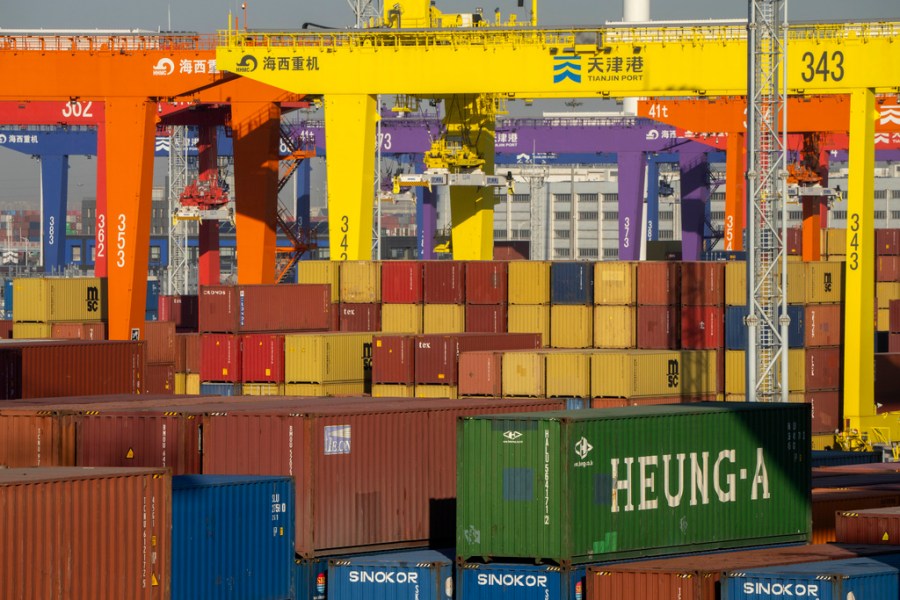
Taxes distort economies. For example, income taxes discourage productive work; gas taxes reduce travel; and tariffs inhibit international trade. Economists often oppose individual taxes, because they imagine an ideal economy with no distortions, and see these taxes as departures from the ideal.
The Theory of Second Best challenges their view. Proposed in 1956, this theory states that if an economy is not perfectly competitive and is not free of taxes, externalities and other imperfections, the introduction of another distortion is not necessarily bad, because a new distortion might offset an existing distortion. If the economy is already imperfect, adding another imperfection might actually make it better — not worse. Attempting ideological purity can be harmful.
President Trump’s proposed tariffs would introduce new market distortions, as taxes always do. But other market imperfections are already present. Suppose China offers a tractor that is equal in quality to U.S.-made tractors, and is 1 percent cheaper after shipping costs. With no tariff, U.S. tractor factories will close, causing workers to lose their jobs. Some of these workers will receive government assistance, such as unemployment insurance payments, welfare payments, Section 8 housing vouchers and various social services. This assistance will be paid for with taxation, which will cause economic distortion.
The relevant question is not whether a tariff on Chinese tractors will cause economic distortions; it will. The question is whether those distortions are bigger than the distortions caused by the higher income taxes needed to support unemployed workers.
Thinking beyond pure economics, a wise policymaker would ask whether the hardship of unemployed American workers is worth the 1 percent savings on tractors. And for American policymakers, it is the condition of American workers that matters, not foreign workers.
Some might argue that unemployed workers will find other jobs. This might be true, but in an age of artificially intelligent robots, there is no guarantee that manufacturing jobs will be plentiful in the future. Preserving what American employment we can seems prudent at a time when labor market volatility is likely.
A wise policymaker might also ask whether it is healthy for the U.S., in an increasingly unstable world, to rely on other countries for its basic needs. Tariffs that encourage U.S. production might be appreciated when foreign supplies are cut off. Paying slightly higher prices for vital goods and equipment could be preferable to doing without someday. We are a big country, capable of supplying more of our own needs than we currently do.
Another factor is the interplay of tariffs with other taxes in producing revenue that the government needs to operate. The U.S. government could be financed with a single tax on income, but is this really best? The damage that taxes cause increases more than linearly with tax rates.
In other words, a 50 percent tax does more than double the damage of a 25 percent tax, and a 100 percent tax certainly does more than double the damage of a 50 percent tax. If this is the case, then it is better to have a 10 percent tax on two things than a 20 percent tax on one thing. To the extent that revenue from tariffs can offset lower income tax rates, tariffs can reduce overall tax-induced distortion.
But perhaps tariffs are different because other countries can retaliate with their own tariffs. Payers of income taxes are unable to enact their own retaliatory taxes against the IRS. But the fact is that we are already being treated unfairly by other countries. One hundred thirty eight countries charge higher tariffs on U.S. goods than we charge on theirs, and many of the countries with lower tariffs have non-tariff barriers to U.S. goods, such as the European Union’s “sanitary and phytosanitary” restrictions that exclude many U.S. agricultural products.
Refraining from tariffs to avoid retaliation seems silly when we are already being retaliated against. Showing willingness to raise tariffs might allow the U.S. to negotiate better trade terms, but sticking to low tariffs over free trade principles might convince other countries that the U.S. is a patsy.
Economists cling to a theoretical dream of wiping out tariffs and they criticize any proposal to raise them. Trump is a practical man who sees the world as it is, and understands that tariffs have value. Every president since George Washington has collected revenue from tariffs, and they have risen and fallen as needed. Trump has good reasons to raise them.
David Barker was an economist at the Federal Reserve Bank of New York and adjunct professor for the University of Chicago and University of Iowa. He is Partner at Barker Companies and co-founder of Promising People.

